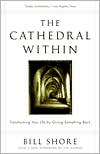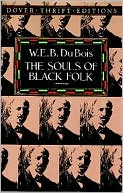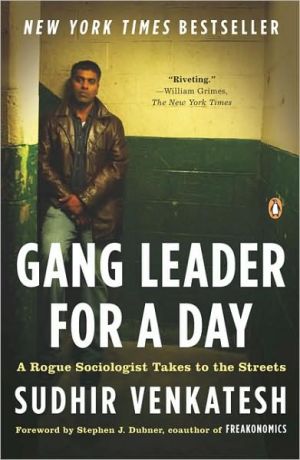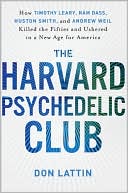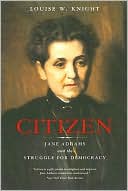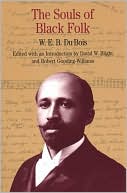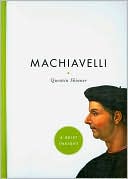The Cathedral Within: Transforming Your Life by Giving Something Back
In this wise and inspiring book, social entrepreneur Bill Shore shows us how to make the most of life and do something that counts. Like the cathedral builders of an earlier time, the visionaries described in this memoir share a single desire: to create something that endures. The extraordinary people Shore has met on his travels represent a new movement of citizens who are tapping into the vast resources of the private sector to improve public life. Among them are:\ -- Gary Mulhair, who has...
Search in google:
Bill Shore has written a wise and inspiring book that shows us how to make the most of life and do something that counts.Like the cathedral builders of an earlier time, the visionaries described in this memoir share a single desire: to create something that endures.
Chapter One\ Finding the Cathedral Within\ I I recently received a handwritten letter from a friend who left his job. He wrote, “What I want to do next, in addition to making some dough, is something that counts.”\ He is forty-three years old, has three young sons, and lives in the Washington suburb of Silver Spring, Maryland, where I also live. We’ve known each other more than a decade, having crossed paths in various political campaigns. He’s been a small but steady contributor to Share Our Strength (SOS), the antihunger and antipoverty organization I founded, his check always accompanied by a heartfelt note complimentary of our work. His current stationery is distinctive, and when I saw his letter on top of a tall stack of mail on my desk, I wasn’t sure what to expect. (Actually I don’t have a desk. I sit at the same folding table I’ve used since SOS began fifteen years ago. There’s more room for my legs and I’m too sentimental or superstitious to give it up. Besides, along with the rest of the nonmatching furniture that’s been donated to our office, it reassures donors that we’re spending their money the right way.)\ “Something that counts.” It’s a revealing phrase. It holds the promise of both higher purpose and lasting result. There’s an earnestness in its simplicity and plainspokenness. It’s especially revealing when it’s got the gold seal of the president of the United States embossed above it.\ My friend’s name is Mike McCurry. For three years he served as Bill Clinton’s press secretary and managed to satisfy both the president of the United States and the press corps covering him. He left to a chorus of favorable reviews, culminating in NBC anchorman Tom Brokaw ending a nightly newscast with an affectionate “Good job, Mike.”\ I’m intrigued that Mike didn’t say he wants to “continue” doing something that counts, but rather that it’s what he wants to do “next.” Mornings in the Oval Office, afternoons on Air Force One, and evening appearances on every television screen in the country would qualify, for some people. The White House is where the action is, the center of our national attention. Events in far corners of the world are influenced by what does or does not happen there. If working in the West Wing at a senior level doesn’t count, then what does?\ Don’t get me wrong. I think McCurry loved being presidential press secretary. This was a job he not only coveted, but methodically groomed and prepared himself for over many years, and one at which he excelled. Starting with John Glenn’s presidential campaign in 1984, then Bruce Babbitt’s in 1988, and finally Senator Bob Kerrey’s in 1992, McCurry both learned the ropes and paid his dues. He managed to emerge from each loss with his good humor intact and his reputation enhanced. Ultimately, he accepted the post of spokesman for Secretary of State Warren Christopher, mastering the details and nuances of foreign policy and confidently handling the press corps. The State Department was a staging ground to catch the attention of the president, whose 1992 campaign he had opposed. When Clinton’s first press secretary, Dee Dee Myers, left the White House, McCurry was brought in.\ McCurry managed to weather the Clinton scandals and maintain not only numerous friendships in the press corps but, more important, his integrity. By the time he left, he was a well-known and well-liked TV personality. There were invitations to give speeches, write books, and lobby, as well as many other lucrative opportunities. As anyone in his position would, he took some of them. He’s savvy enough to have no illusions about either his celebrity or the value he can derive from it in a celebrity-conscious marketplace. When he talks about doing “something that counts,” he’s not referring to society’s definition. He means something that counts to him.\ Doing something that counts. Something that not only makes a difference, but has a lasting impact. It’s a basic human need, like water or calcium. We can actually get by with surprisingly little of either, but we hold together better and longer when we get regular servings of each. Wait, I’ll go further; there’s a better analogy. We need it like we need love. It’s the need we aren’t sure how to talk about, the one that makes us feel . . . whole.\ This goes to the very heart of what Share Our Strength means and does. Everyone has a strength to share. Often it is a skill or talent they’ve come to take for granted, but one that can make a difference in the life of somebody else if properly deployed. Mentors share strength. So do tutors, coaches, and doctors. Chefs who teach nutrition to low-income families are sharing strength, as are college students who read to children in preschool Head Start programs. Sharing strength is as valuable as donating money. Sometimes it’s worth more, because it cannot be bought.\ All of us have strengths we need to share. The challenge lies in creating vehicles that enable diverse individuals to do so, especially that vast majority who may not think of themselves as community activists, civic leaders, or social entrepreneurs, or as part of a broader national service movement. It’s not just about volunteering or trying to be a better person. It’s not about making your community a better place. It’s not about service being good for your soul. It is more fundamental, almost primal. It is what the species instinctively wants to do: to perpetuate itself by leaving something behind; to make a mark that lasts; to make ourselves count.\ Each day the mail at SOS brings pleas for money, but each day also brings pleas for meaning. I get a lot of letters like Mike McCurry’s from college students and corporate executives, from mothers whose children are grown, and from businesspeople who have enjoyed prosperity but not necessarily purpose. They say they want to “give something back,” to find a way to contribute that will be meaningful and make a difference. What they want to know is how.\ There have always been such people among us: generous, altruistic, even idealistic. In recent years, their numbers have grown, but so have the opportunities to serve. Right now, the potential to bring about lasting change is greater than ever before, and so is the need. Today, there is another generation of Americans that desperately needs help: the generation of children who are poor, vulnerable, and destined to repeat a familiar cycle of dysfunction and despair that is incongruous and unnecessary in a prosperous America.\ Historically, when faced with crisis, our society and government have responded—however untimely, slowly, or inadequately—with assistance that has been in direct, not inverse proportion to the nature of the needs at hand. This is no longer the case regarding the needs of children. At a point in modern American history when children are at their greatest peril—from violence, drugs, the breakdown of family, and social and economic trends trapping them in poverty—protections are being dismantled at every level. It is as if the mighty Mississippi River were flooding at record levels, and instead of piling sandbags high, the people and their government started carting them away, frustrated and angry that the river hadn’t learned its lesson after all these years and chances.\ That said, the sandbags we’ve piled up, some from as long ago as Franklin Roosevelt’s New Deal, are not, by themselves, enough. Something is missing from the mixture of public policy and social science we’ve relied upon to produce healthy children. Of twelve million children under the age of three in the United States today, staggering numbers live in conditions that threaten their lives. One in four lives in poverty. We’ve been able to relieve misery, often just temporarily, but not to reverse it. This has been the case whether the prevailing winds were liberal or conservative.\ In the midst of unprecedented affluence, America leads the industrialized nations in the percentage of children raised in poverty. The consequences for poor children are dire. They are more likely to have poor health, die during childhood, score low on standardized tests, have out-of-wedlock births, and experience violent crime. Such consequences are also preventable, as are the conditions that create them, but only if we approach them dramatically differently than we have in the past.\ The social paradox of our time is that prosperity hides poverty. Good times distract us from the bad. When pain is not shared, it is not top-of-mind. Prosperity creates comfort, and comfort is the enemy of change.\ By itself, even a massive new wave of talent serving in ways that are better and more effective may not be enough to save these kids, but it is one indispensable ingredient without which they have no chance at all. You may wonder if it is guaranteed that committing yourself to the task will change our country and their lives. It is not, but it is guaranteed to change yours.\ Over the past four years I’ve traveled the country almost nonstop. From Boston to Battle Creek, from Ar-kansas to Arizona, from West Virginia to Wisconsin, I’ve met teachers, doctors, chefs, bus drivers, shoe salesmen, cookware manufacturers, artists, social workers, retailers, librarians, coaches, bankers, and thousands of others working to improve their communities. They shared ideas, best practices, and their experiences doing something that counts. The organizations they’ve built and the programs they run are fascinating, but what has stayed with me more vividly than what they said is what they showed of themselves and confirmed about human nature: that it embodies an irrepressible and infinite ability to create, express, give, and share strength. Those who do so grow stronger still.\ Explorers are partial to bold declarations. When asked once how he would have designed the universe differently, Maarten Schmidt, a world-renowned astronomer at Cal Tech and discoverer of galaxies, exclaimed, “God! What a wild question. Sometimes it strikes me that the universe is much smaller than . . .” He hesitated a moment. “All right, here we go. I would have constructed a bigger universe. I think the universe is small. If I’d had my rathers, I would do that. I find the universe too confined. I find it amazing that it is so small.”\ This is a book about constructing a bigger universe, about the new ideas and new leadership of extraordinary people who are expanding the range of what is possible in communities across America and making the future larger for ourselves and for our children.\ It is not my goal to write a book calling for new programs. Congress, state legislatures, and national and community foundations have already created thousands of them ranging from Head Start and school breakfasts to drug counseling and student aid. They serve vital purposes, but by themselves they are not enough. Nor is my objective to produce a book about finding new financial resources or the political will to create them, although that too is necessary.\ My ambition instead is to design a new architecture for how society uses resources to help children, much like the cathedral builders of an earlier time, who combined imagination, invention, and faith to build something both magnificent and lasting. The great cathedrals did not grow skyward because their builders discovered new materials or suddenly found the necessary financial resources. Rather, they had a unique understanding of the human spirit that enabled them to use those materials in an entirely new way.
